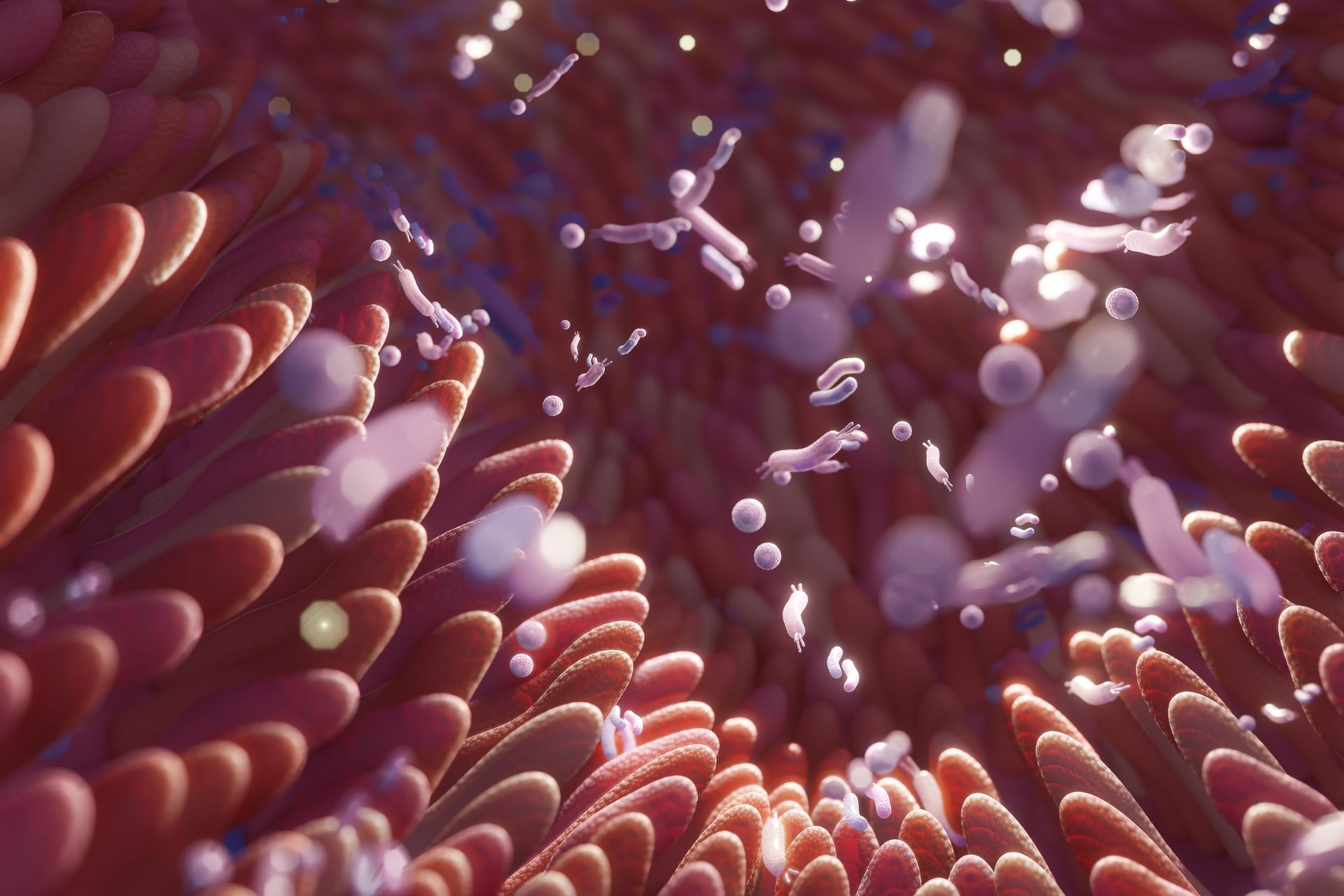The gut microbiome is the community of over 100 trillion microorganisms that live in our gut—mainly bacteria, but also viruses and fungi. They perform a wide range of important functions, many of which we don’t yet fully understand. This includes the digestion of food, the synthesis and absorption of nutrients, the development and regulation of the immune system, defending against harmful microorganisms, and influencing brain health, mood, metabolism and weight management.
Most of the bacteria in our gut are beneficial and play an important role in our health. However, certain types of bacteria in your gut can contribute to health problems. The right balance between good and bad bugs is the key to a healthy gut, and better overall health and wellbeing. Having a diverse microbiome (i.e. a wide variety of different gut bugs) is also associated with better health.
Each of us has a unique gut microbiome, which is affected by many factors – some which you can’t change and others that you can. These include:
- Genetics
- Age
- Whether you were born vaginally or by caesarean section
- Whether you were breastfed and for how long
- Your location and living environment
- Your diet
- Your activity levels
- Stress
- Smoking and alcohol consumption
- Taking certain medications, particularly antibiotics and proton-pump inhibitors (medications used to treat reflux and stomach ulcers)
Not surprisingly, your diet plays a crucial role in building a healthy gut microbiome. What you eat nourishes not only you, but it also feeds the trillions of microorganisms that live in your gut.
Eating a wide range of fibre-rich plant foods (including fruits, vegetables, minimally processed whole grains, legumes, nuts, seeds, herbs and spices) can help to produce a healthy and diverse gut microbiome. Restrictive diets, on the other hand, particularly low carbohydrate, gluten-free and low FODMAP diets, can reduce diversity and lower levels of some types of healthy bacteria. Other lifestyle changes that can contribute to a healthy gut microbiome include exercising regularly, managing stress levels, not smoking and limiting alcohol intake.
It is also important to avoid the unnecessary use of antibiotics. Antibiotics are life-saving when needed. However, they are also often overused. Antibiotics can kill many of our good gut bugs, as well as the bad ones. If you need to take a course of antibiotics, make sure you eat plenty of the foods that can help to boost your good bacteria. Taking a probiotic supplement may also help to restore some of your good gut bugs. However, with probiotics, there are many strains, and each has different effects on gut health. So, if you choose to take a probiotic supplement, speak to your GP or dietitian first to make sure the one you choose is right for you.
For more information visit: Food and Mood Centre: Gut Microbiota and Diet: An Introduction
Download: Nutrition Australia: Fact Sheets—Love Your Guts


